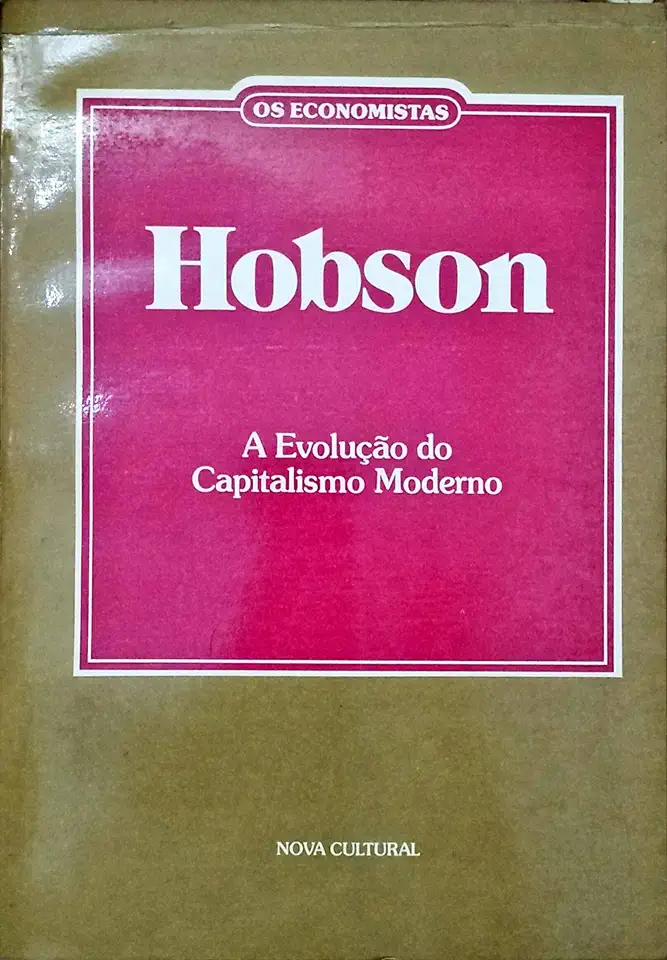
The Evolution of Modern Capitalism - John A. Hobson
The Evolution of Modern Capitalism by John A. Hobson
A Pioneering Work in Economic Thought
John A. Hobson's seminal work, "The Evolution of Modern Capitalism," published in 1894, stands as a groundbreaking contribution to economic thought. Hobson's analysis of the inherent contradictions and instabilities of capitalism challenged the prevailing economic orthodoxy of his time and laid the foundation for modern economic thought.
Unveiling the Flaws of Unrestrained Capitalism
Hobson's central thesis revolves around the concept of "underconsumption," a situation where the purchasing power of the working class is insufficient to absorb the goods produced by the capitalist system. This imbalance, he argued, leads to a chronic overproduction of goods, resulting in periodic crises and economic downturns.
Hobson's analysis goes beyond the surface-level symptoms of economic crises and delves into the structural flaws of capitalism itself. He exposes the inherent contradictions between the drive for profit maximization and the need for mass consumption, highlighting the tendency of capitalism to concentrate wealth in the hands of a few while impoverishing the majority.
The Social and Political Consequences
Hobson's work extends beyond economic theory to explore the social and political consequences of unrestrained capitalism. He argues that the concentration of economic power leads to the erosion of democracy and the rise of plutocracy, where wealth exerts undue influence on political decision-making.
Hobson's analysis also sheds light on the imperialistic tendencies of capitalism, as nations seek new markets and sources of raw materials to sustain their economic growth. He exposes the exploitative nature of imperialism and its devastating impact on colonized peoples.
A Call for Social Reform
Hobson's critique of capitalism is not merely an academic exercise; it is a call for social reform. He advocates for policies that promote a more equitable distribution of wealth, including progressive taxation, social welfare programs, and labor reforms. Hobson believed that these measures were essential to mitigate the harsh effects of capitalism and create a more just and sustainable society.
Relevance in Today's Economic Landscape
"The Evolution of Modern Capitalism" remains relevant and insightful in today's economic landscape. Hobson's analysis of underconsumption, wealth inequality, and the social and political consequences of capitalism resonates strongly with contemporary economic challenges.
In an era of rising income inequality, financial crises, and growing social unrest, Hobson's work offers valuable insights into the systemic flaws of capitalism and the urgent need for reform. His call for a more equitable and sustainable economic system continues to inspire progressive thinkers and policymakers to this day.
A Must-Read for Economists, Historians, and Social Scientists
"The Evolution of Modern Capitalism" is a must-read for economists, historians, and social scientists seeking a deeper understanding of the evolution of capitalism and its impact on society. Hobson's pioneering work challenges conventional economic wisdom and provides a framework for analyzing the complex dynamics of modern capitalism.
With its compelling arguments, insightful analysis, and enduring relevance, "The Evolution of Modern Capitalism" is a seminal work that continues to shape economic thought and inspire progressive social change.
Enjoyed the summary? Discover all the details and take your reading to the next level — [click here to view the book on Amazon!]